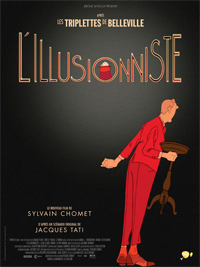
Train reading over the last little while (when not listening to the Mayo/Kermode podcast) has been Paul Krugman’s The Conscience of a Liberal: Reclaiming America From The Right (2007, this edition paperback with new foreword from 2009).
The book is essentially a history of “how we (the U.S.) got into this mess”, combined with an emphatic reminder “yes, this is a mess”. It tracks through the last century-plus, where the Long Gilded Age of massive inequality was succeeded by the New Deal which introduced a welfare state and (with the help of some wartime measures) brought about what Krugman calls “the great compression”, where the extremes of inequality shrunk massively and the U.S. became a middle-class nation.
Then it tracks the rise of movement conservatism through its capture of the Republican party, and shows how the political shifts from Reagan onwards pushed inequality back towards Gilded Age levels. And it does all of this from an explicitly liberal, progressive viewpoint (Krugman discusses the use of both terms) that gives a prescription for pulling back from inequality and, crucially, completing the New Deal by developing health care for all.
It’s a great and readable book, putting a framework around a lot of things I only knew in bits and pieces. It’s a refreshingly candid argument, too, with an appeal to the fundamental morality of political liberalism and a reminder that it is liberals who are always on the side of democracy:
When liberals and conservatives clash over voter rights in America today, liberals are always trying to enfranchise citizens, while conservatives are always trying to block some citizens from voting. When they clash over government prerogatives, liberals are always the defenders of due process, while conservatives insist that those in power have the right to do as they please. After 9/11 the Bush administration tried to foster a deeply un-American political climate in which any criticism of the president was considered unpatriotic – and with few exceptions, American conversatives cheered. (p267)
Implicit in Krugman’s argument, but mostly unexplored in favour of other lines of discussion, is the power of social identity in shaping politics. Krugman gives convincing evidence that America is in fact a liberal country – that when you poll Americans on policy initiatives they would support, liberal policies are highly favoured. However, many of these same people identify as Conservatives. This is partly thanks to movement conservative’s skill at putting values issues to the forefront, a trick learned from Nixon; partly it’s a legacy of endemic racism in the US. In fact, if there’s anything in Krugman’s book that shocked me, it was his matter-of-fact conclusion that racism in the U.S. – specifically, the race relations problems that are the legacy of the slave trade – is the point of differentiation that explains why the US is so different to its neighbours and contemporaries. Since Reagan’s “welfare queens” comment, the hidden element of economic discussions in the US is that supporting poor people means supporting black people, and that is not a vote-winner.
Krugman gives a good account of the rise of movement conservatism. This was a small set of intellectuals in favour of minimal government and unregulated economic activity, and who saw the welfare state as anathema. They developed over time into a complex system of media channels, think tanks, and political operations that co-operate and, crucially, protect their own by circling them around through the system while ejecting those who stand against them (e.g. by shifting towards a more Eisenhower-Republican stance). However, he doesn’t have much to say about why people become movement conservatives – about the appeal of the ideology, in its purist form as well as its popularized (tea party) form. (The tea party movement hadn’t happened at the time Krugman wrote, of course, but the elements of it could be seen in the Joe-the-Plumber/Sarah Palin crowds.) To be fair, that’s well out of Krugman’s area, but I would have appreciated some comment from him on this. Movement conservatism, it seems clear from Krugman’s account, is not fundamentally concerned with social dividers like race and homosexuality. Movement conversatism is about the relationship between wealth and government, which are not identity issues in the normal sense; and yet the ideology seems to resonate as powerfully as any identity politics might.
This post hasn’t been a very good review or description of the book, more some random musings that it has prompted in me, but there you go. As usual, reading about the U.S. political scene is an exercise in wonder and frustration for me as a non-U.S.ian, but the influence of the U.S.A., and of movement conservatism, is clearly felt over here in countless ways so this kind of understanding is very handy. Book now available for borrowing, Wgtn/Hutt folks!




